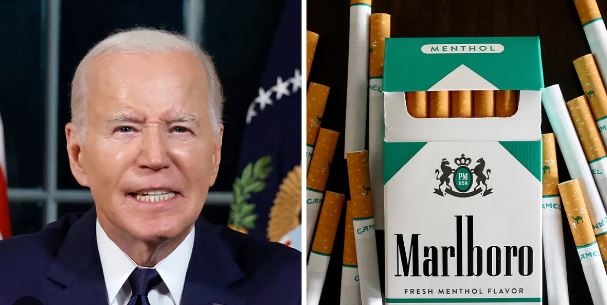Biden Administration Postpones Menthol Cigarette Ban Amidst Various Challenges

The Biden administration has decided to delay the implementation of a ban on menthol cigarettes, a move that has been met with diverse reactions. This decision follows intense lobbying from the tobacco industry, alongside concerns about potential backlash from Black smokers, who are statistically more likely to use menthol cigarettes compared to other demographics. This postponement is seen as a politically cautious step as President Biden prepares for re-election.
Originally, the administration planned to finalize rules for the ban by August, later shifting this target to January. However, the new timeline extends the decision to at least March, with the actual ban not expected to take effect for several years due to anticipated legal challenges. This delay has raised concerns among anti-smoking advocates who have been pushing for quicker implementation, citing the potential health benefits of the ban.
Karen Knudsen of the American Cancer Society emphasized the urgency of the ban, stating that it could save up to 650,000 lives over the next four decades, many of whom would be Black Americans. Over 18.5 million people in the United States smoked menthol cigarettes in 2019, with 81 percent of Black smokers choosing menthol cigarettes, according to the U.S. Centers for Disease Control and Prevention.
Opponents of the ban, including representatives from R.J. Reynolds and other groups, argue that it could harm small businesses, reduce tax revenue, and create a black market for menthol products. They also raise concerns about the lack of cessation measures for smokers in the proposal and the potential for discriminatory impacts on Black and Latino communities, who are major consumers of the products targeted by the ban.
The Biden administration has countered that enforcement would focus on tobacco companies rather than individual users, aiming to mitigate the risk of discriminatory policing.
This decision to delay reflects the complex interplay of public health objectives, political considerations, and the socio-economic impacts of tobacco regulation.





